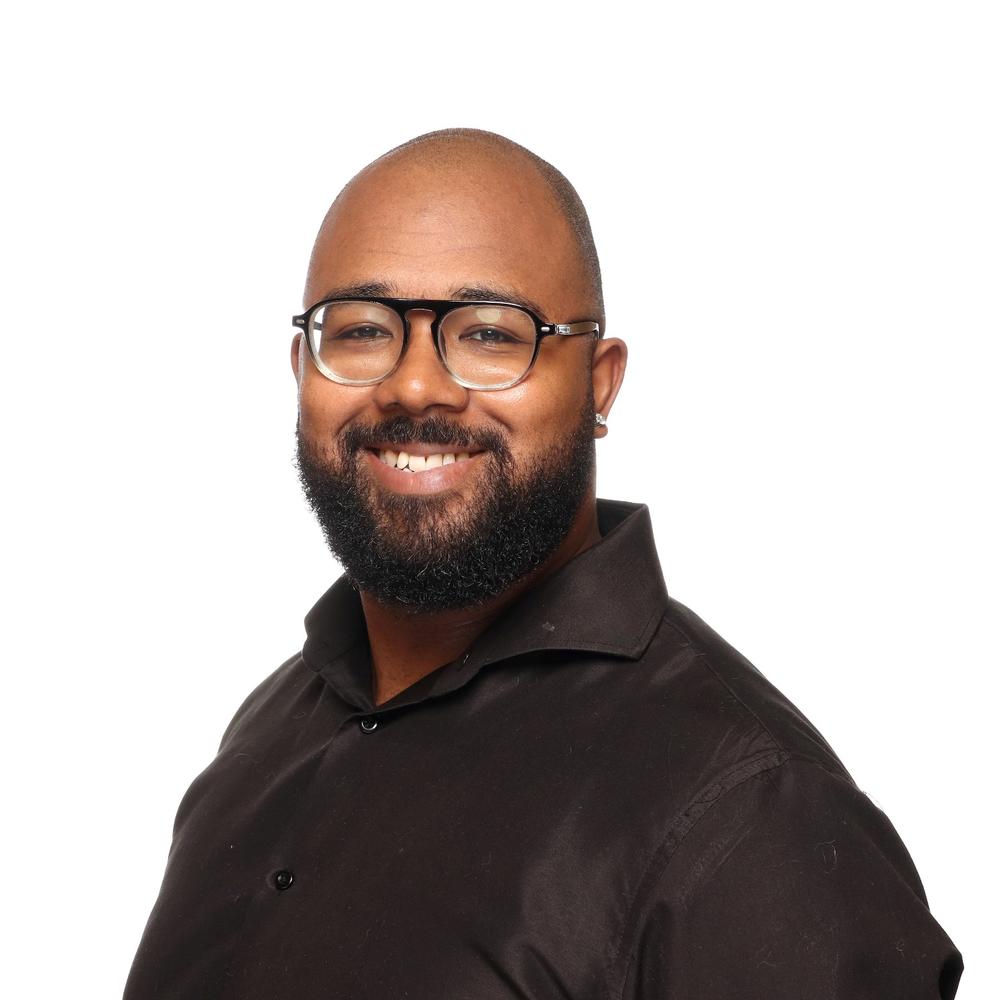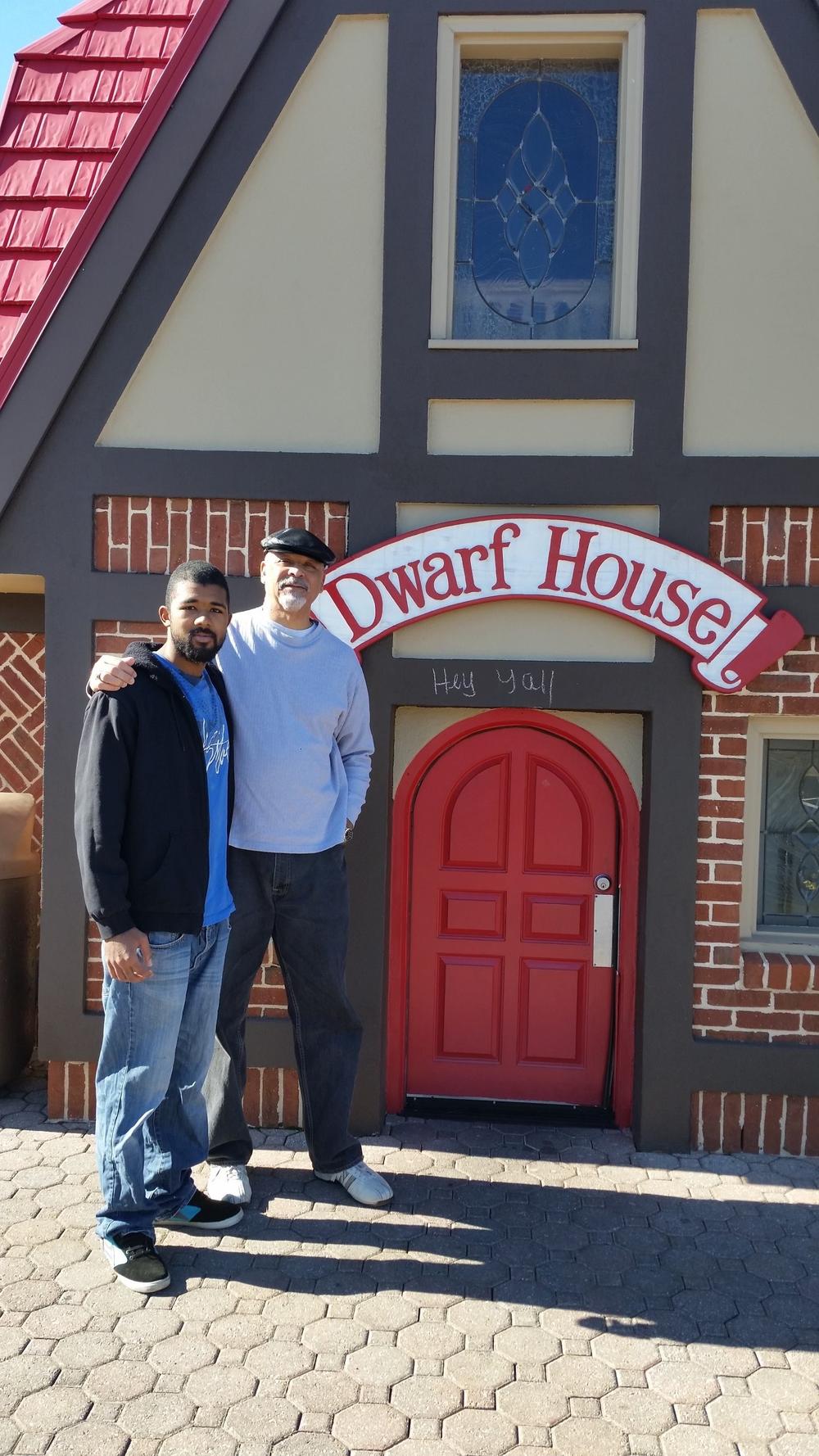
October 23, 2025
From Vocational Rehabilitation to Visionary Leader: A former GVRA Client Shares His Story of Recovery and Resilience

Anthony Catlin didn’t like college. He had no clear direction, so at age 19 he began using synthetic drugs as a means of escape. “In college, it seemed like students around me were pursuing their dreams, but I didn’t have a plan,” he said. “To cope, I began using drugs. I was making immature decisions; I was focused on short-term gratification while my peers were planning their future.”
The lack of direction in Anthony’s life resulted in a downward spiral. As a young man, he was hospitalized because of suicidal thoughts. At one point his circumstances became so unmanageable that he served a brief stint in jail, which subsequently led to placement in a group home.
“Things clicked for me in the group home,” Anthony exclaimed. “One day I asked a man who had been living in the home longer than I had if he liked living there. He told me if he helped set the dinner table, he would get extra food on his plate. That was a light bulb moment for me. I realized I didn’t want that to be my story,” he shared. “That’s when I knew I needed to improve my situation.”
Anthony began researching schizophrenia and eventually sought guidance from mental health professionals. “I was diagnosed with schizoaffective disorder. I began seeking treatment,” he stated. “I didn’t want to be stuck in a group home. I wanted a life. I wanted to get married. I wanted to drive on the open road. I wanted to become a productive member of society.”
Participation in a Day Program leads Anthony to apply for GVRA Services
To augment his recovery from substance abuse, Anthony enrolled in a day program offered by ViewPoint Health in Gwinnett County. While there, he told a counselor he wanted to get a job so he could earn his own money. He emphasized to ViewPoint staff that he wanted a position which would be low stress, such as folding clothes, so he could concentrate on his recovery.
When Anthony brought up employment, the staff at ViewPoint referred him to GVRA. “Applying for GVRA services was a godsend,” Anthony declared. “They helped me get an interview at Old Navy, a retail store. GVRA not only helped me find a job, but they also provided funds for me to buy interview clothes. I still remember going to Sears to select a crisp pair of white pants for my interview. My GVRA case is closed but to this day I keep a pair of crisp white pants in my closet for dressy events. The pants are a reminder of how far I have come in my recovery.”
Obtaining employment at Old Navy helped Anthony rebuild his social skills and strengthened his emotional intelligence. When asked about his experience with GVRA, Anthony said his GVRA counselor respected his privacy. “My counselor didn’t disclose my challenges to the Old Navy staff. Her stance gave me the freedom to share my story when I was ready,” he noted. “Eventually I did tell the Old Navy staff I was in recovery, but it was on my terms.”
Working at Old Navy gave Anthony the confidence to pursue career training. At age 23, he became a Certified Peer Specialist for Youth and a Certified Peer Specialist for Mental Health. Becoming a certified peer specialist enabled him to help individuals on their respective journeys. Later, Anthony became a peer trainer, which allowed him to train hundreds of youth and parent peers across the state.
Additional Training Propels Anthony into a Leadership Position

Now in his 30s, Anthony is proud to serve as a project director for the Georgia Department of Behavioral Health and Developmental Disabilities. Specifically, he leads a team of professionals who administer a grant from the Substance Abuse and Mental Health Services Administration (SAMHSA), a unit of the U.S. Department of Health and Human Services.
“I’ve been employed with the Georgia Department of Behavioral Health and Developmental Disabilities for five years. Becoming a project director for the SAMHSA grant has been a major milestone. To me, it’s proof that recovery not only restores lives but also produces leaders,” Anthony mused.
DBHDD’s Georgia Youth and Family TREE initiative is designed to improve the lives of youth and young adults between the ages of 14-25 who are experiencing substance use issues or co-occurring mental health disorders. The agency accomplishes its objectives through coordinated outreach, screening, treatment, and recovery support.
Anthony says administering the SAMHSA Grant is Meaningful
Overseen by DBHDD, in conjunction with the Grady Health System and iHOPE, Inc., the Youth and Family TREE program focuses on expanding treatment options, identifying individuals at clinical risk for psychosis, and strengthening provider capacity. Staff use evidence-based practices to enhance recovery outcomes, thereby reducing hospitalizations or potential legal proceedings.
Dana McCrary, one of Anthony’s DBHDD colleagues, mentioned she is impressed with Anthony’s work ethic. “I have witnessed Anthony experiencing instances of fear and uncertainty. However, I have also watched him find the courage to keep getting up and to keep moving forward. Anthony has demonstrated remarkable courage in his own life and in his profession,” she noted.
When asked to reflect on his accomplishments, Anthony said his recovery informs the way he leads at DBHDD. “One of my greatest accomplishments has been turning my lived experience into purpose. I lead with the end goal in mind,” he shared.
To achieve successful outcomes, Anthony ensures the person receiving services gets excellent support. “Becoming a certified peer specialist has opened the door for me to walk alongside individuals during their recovery. I enjoy providing direct peer support and helping people understand healing is possible.”